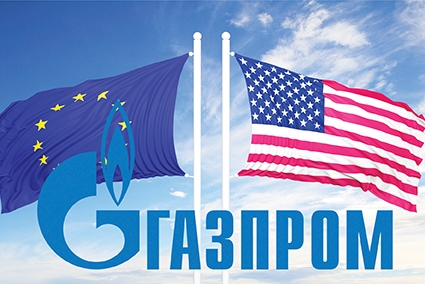If EU Gas Directive Amended, Nord Stream 2 Will Ask for Damage Compensation
If changes are made to the EU Gas Directive, which the European Commission is insisting on, Nord Stream 2 AG will ask for damage compensation, said Matthias Warnig, Executive Director of the company responsible for the construction and operation of the Nord Stream submarine gas pipeline from Russia to Germany.
“I could not understand how the extension of the European Gas Directive to gas pipelines outside the EU internal market should function,” Warnig said in an interview with the German WirtschaftsWoche. “And if the EU regulations are changed to our detriment, the issue of compensation for damages will be raised,” he said, adding that Nord Stream 2 invested in the project based on the existing EU Gas Directive.
Hot discussions abound surrounding the Nord Stream 2 project. Germany, for one, cannot be called a big fan of Russia in many political processes. More precisely, at present it is a sharp critic of the Russian Federation in the political sphere. But finance and economics are sacred.
Germany has very serious reasons to buy gas from this project, to which Brussels is sharply opposed: the German desire to get lower prices for Russian "blue fuel," and plans to ultimately abandon coal generation. Therefore, Berlin is opposed to many initiatives put forward by the European Commission (EC), whose goal is to block or delay the project, with German bureaucracy stubbornly defending the interests of those German energy concerns involved in the project.
Germany openly states that the EC could not provide “any explanations or understandable arguments that would show how the proposed changes can contribute to the goals of the energy union.” The lawyers of the German government believe that these demands “are not applicable from the point of view of the European or from the point of view of international law.”
US chances to block the project would have been much higher if American banks were interested in doing so. The US political elite never tiring of throwing lightning at Russia is one thing, but for bankers money is everything and they go on skillfully avoiding the directions of the State Department.
In November 2017, JP Morgan Chase and Japanese Mizuho Bank Ltd, one of the largest financial services companies in Japan, and Sumitomo Mitsui Banking Corp, a Japanese multinational banking and financial services company, issued a loan to Gazprom of EUR 1 billion. At about the same time, maybe even a little earlier, Washington finally dropped the visor and openly declared that in every possible way it would interfere with the construction of the Nord Stream 2.
Dimitri Dolaberidze











